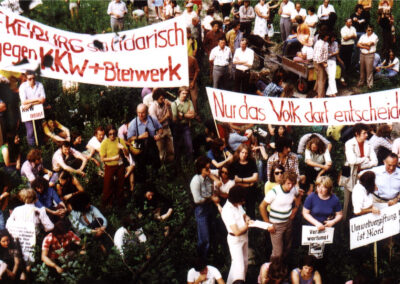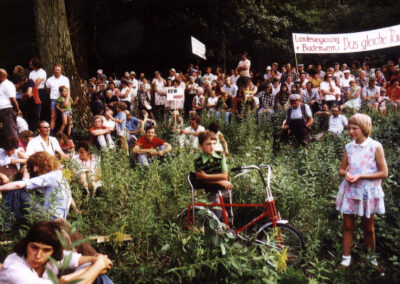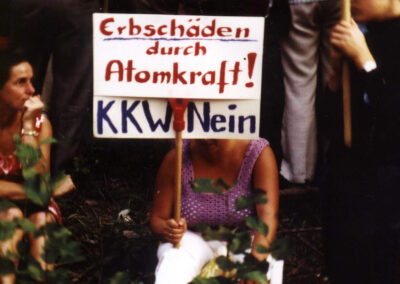A Pivotal Moment in Germany’s Ecological Movement: The Anti-Nuclear Power Protest in Wyhl
This is an excerpt from Incite-DEM’s comprehensive historical review of civic participation and engagement in Europe, the first of its kind, focusing on democratic innovations aligned with the Sustainable Development Goals. Our research focused on the development of democratic innovations from the post-World War II era to the present, highlighting key periods such as the rise of participatory budgeting and deliberative mini publics in the 1980s and 1990s.
The full research will be published in Spring 2025.
A Fight for the Environment
In the early 1970s, a small town in Southern Germany, Wyhl, became the epicenter of a movement that would shape the future of Germany’s environmental activism. From 1973 to 1977, local citizens, concerned about the environmental impact of a proposed nuclear power plant, ignited a powerful protest that ultimately led to the project’s cancellation. This was one of the first major victories for the German ecological and anti-nuclear power movement.
Initially, the protest was driven by environmental concerns rather than the fear of nuclear disaster. Locals were worried about the potential warming of the Rhine River, increased clouds and fog from the cooling towers, and the overall impact on the region’s natural beauty. Over time, the dangers of radioactivity also became a significant rallying point, drawing more people to the cause.
A non-binding local referendum, or “Bürgerentscheid” (citizens’ decision), was held to decide whether the land for the nuclear plant should be sold to the energy company. Those in favor of the plant, enticed by the promise of jobs, narrowly won. Despite this, the protest didn’t stop. The local movement gained momentum and even crossed borders, with French activists joining the cause due to the site’s proximity to France.
A Historic Victory
The persistent protests, which united communities across the region and beyond, eventually pressured the regional government to scrap the nuclear power plant plans altogether. The success in Wyhl marked a significant early victory for the German ecological movement, proving the power of grassroots activism and setting the stage for future environmental and anti-nuclear initiatives in Germany.
The story of Wyhl is a testament to the strength of collective action and the importance of standing up for the environment. It reminds us that even in the face of powerful industrial and governmental forces, determined citizens can make a difference.



